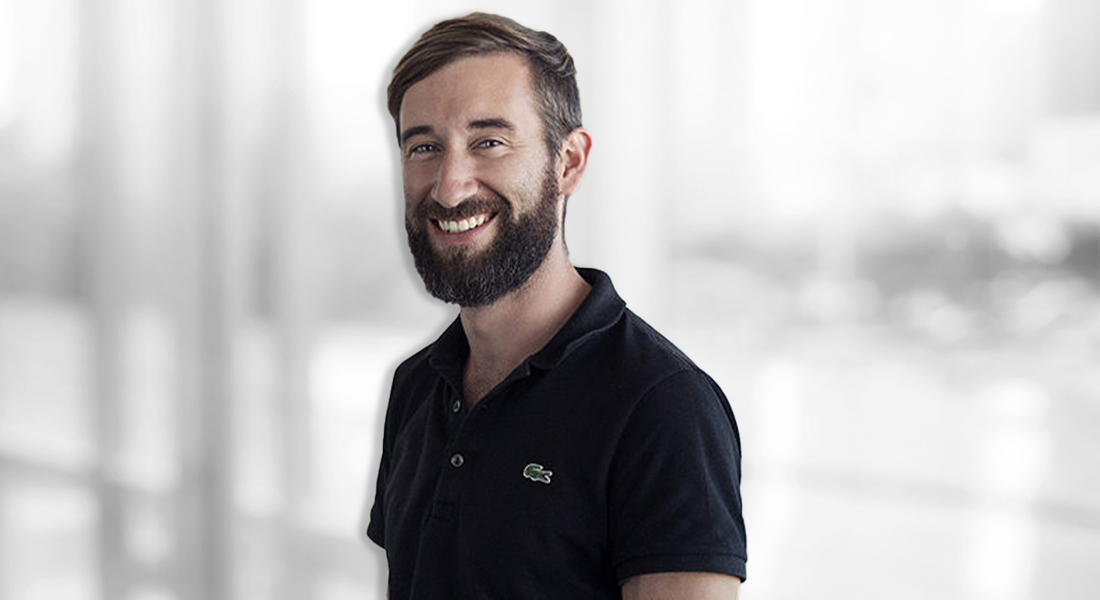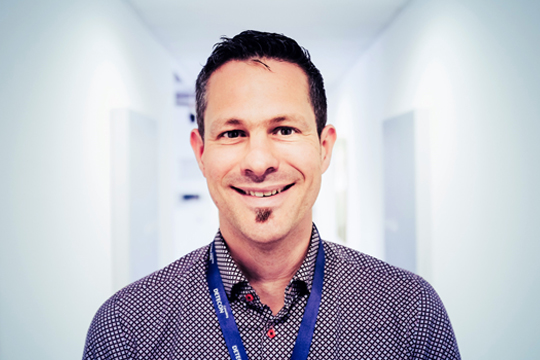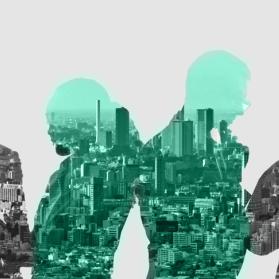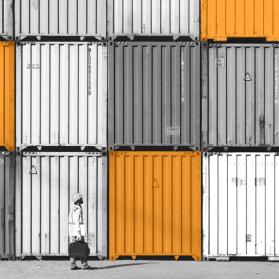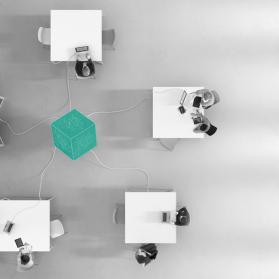The mobility industry has been affected by the Corona pandemic like hardly any other industry. In the interview with Detecon expert Daniel Kraus-Ihlow FlixMobility founder Daniel Krauss explains how his company is dealing with this new reality and how it is also preparing for the future ahead. In this context, the culture in the company and the awareness of sustainability play a central role.
Detecon: Everyone knows Flixbus, of course. But what makes Flixmobility different?
Daniel Krauss: Flixmobility designates our efforts to diversify our offering, beyond the bus, in favor of other means of transportation.
It all started with FlixBus - our best-known brand. FlixBus is also still our core, our heart and our biggest product. Since our launch in 2013, we have found that our customers' needs are not one-sided. For example, some users don't just want to book a ticket to get from A to B, but charter an entire bus for a larger group. FlixBus Rentals was consciously born out of this idea. In addition, it became apparent that we have a higher demand over long distances and that it makes sense to plan fewer stops - which then allows passengers to travel faster. This is how FlixTrain came into being. In the future, we want to continue to grow with FlixTrain because we believe in the product as a strategic pillar of FlixMobility and the response in the first few years has been overwhelming.
These thoughts and lines of business have led us to more mobility options that allow the customer to easily switch between different modes of transportation. This approach then gave birth to the company with the holding Flixmobility.
The Covid 19 pandemic has made travel virtually impossible. What impact has this had on your business? How has your relationship with customers changed?
The current situation is that people are traveling less. Of course, there are various fundamental factors that affect the customer. There is a natural defensive reaction, even fear, that causes people not to travel. In addition, we see the efforts and measures taken by politicians to prevent the pandemic from causing even greater damage. Restricting mobility and calling for non-essential travel is one of them. This has a major impact on our business in the first place - and not for the better.
Even after the first lockdown, we quickly realized that we have a social responsibility and must ensure safe travel. We implemented a comprehensive hygiene concept for buses and trains and, among other things, introduced mandatory masks on board immediately after the lockdown, regularly disinfected buses and vehicles, provided hand sanitizers and made sure that everything was as safe as possible. In this way, we have shown that travel is safe! As soon as we return to the roads in Germany, these measures will of course remain in place.
On the employer side, not that much has changed. At the time, we sent everyone to work from home overnight, and then in the summer, we allowed some of the employees to return on a conditional basis. Since November, everyone has been required to work completely from home until further notice and only to come to the office when absolutely necessary.
The transition went smoothly. We are, after all, a child of digitalization, and the necessary infrastructure and applications were already in place before Corona. People practically just closed their laptops in their offices and went home.
Now, of course, we have to look to the future and see how we can reframe the cultural aspect of the office as a place where people physically meet. Microsoft Teams works great, but we're people. And we need to save that aspect for the post-Corona world. Why? Because otherwise, at some point, our culture will suffer. Culture is a very big asset, especially for young companies, that is slow to cultivate but quickly lost. And that' s something we have to keep in mind.
It's an issue that will essentially define the post-Corona world. All of the things that we've subsumed under New Work will have to be adjusted in the process. So there will probably be a New York 2.0 or New New Work, because actually the challenges will be different. The question will no longer be: How do you trust people when working remotely? They've all had to learn that by now. Instead, the challenge will perhaps be: How do I manage to make us still feel like one team, one department, one company? Even if we have never shaken hands before.
Do I understand correctly that culture is the elementary thing for you in this new working reality?
Absolutely. For me, culture is everything that is not clearly tangible, but that defines the identity of a company.
New Work has been a hype topic for quite some time. Purpose was another one. And I think culture and purpose are very closely related. I think if you don't have a culture, or if you have a bad culture, then you forget your purpose. And companies that don't have a purpose can't develop a healthy culture. That said, if all you have is a bunch of remote working zombies, then you can't do either. If you're at that point, then what can happen to you - according to my hypothesis - is that your vision erodes. And then you get into a strategic dilemma, in my opinion.
I can certainly understand that. What do you think a future scenario could look like? What do you think the workspaces of a young company like FlixMobility will look like in 7 years?
When I think about it, I'm primarily concerned with one central question: What is a reasonable working-from-home rate? It won't be 100 percent. There will always be moments when you need to be in the office, for a workshop, for example. But you also have people who might simply have a more pleasant working environment at the office. There are a lot of factors to consider, which means you won't be able to assume 100 percent. I think 80 percent might be a good "guesstimate" on average.
Of course, that has an impact on the need for office space and you might only need a quarter to a third of what you had before. This in turn has a certain positive cost effect, but you can't fully capture it. You need it, for example, to be able to guarantee a good workplace design for employees at home. Working at the kitchen table, as I am doing right now, is at best an interim solution.
Of the remaining office space, only a small part will be equipped with traditional desks. A much larger portion will be used for community spaces, which potentially create culture between employees. And when I say community spaces, I don't mean the kind with foosball or pictures, but curated spaces that can be used for meaningful workshops and productive collaboration.
Regardless of office space, however, one of the biggest challenges will be to give employees a sense of belonging at home as well. You need to feel like you're worth something even when you're behind the computer at home. That has to come across!
This paints a very vivid picture of the future forms of collaboration within FlixBus. To look outward again, at your business, what do you think mobility will look like in the future?
The mobility of the future must be sustainable! And it must be affordable. To ensure that, it has to be shared mobility. Individual mobility will either no longer be affordable or not sustainable enough - or both.
How do you see your prospects in this respect?
Good, if only because there are hardly any companies left that stand for ecological mobility. But also independently of that, because we are simply very sustainably positioned.
Although many of our buses still run on internal combustion engines, we have a very modern fleet. Almost 100 percent of our vehicles are Euro VI diesel buses. This means that CO2 emissions per passenger are minimal. The fact that long-distance buses are the most sustainable means of long-distance transport, even ahead of trains, was recently confirmed once again by the German Umweltbundesamt (Federal Environment Agency). Passengers can easily offset the remaining emissions when booking with our partner Atmosfair - this offer is already used by 10% of customers in Germany. FlixTrain runs on electricity from Greenpeace Energy. We also offset what the headquarters emits, and we also try to be as CO2-neutral as possible around our processes. In addition, we are the only or one of the few transportation companies that plan based on demand. We don't have empty buses driving around.
All in all, we have already initiated a lot to be even more sustainable. But we are still a long way from reaching our goal. That's why we're working with partners to try out new things, such as fuel-cell buses or battery-powered e-mobility, as we've tested in France, Germany and the United States. We want to be CO2-neutral by 2030 - and are doing everything in our power to achieve this ambitious goal.

